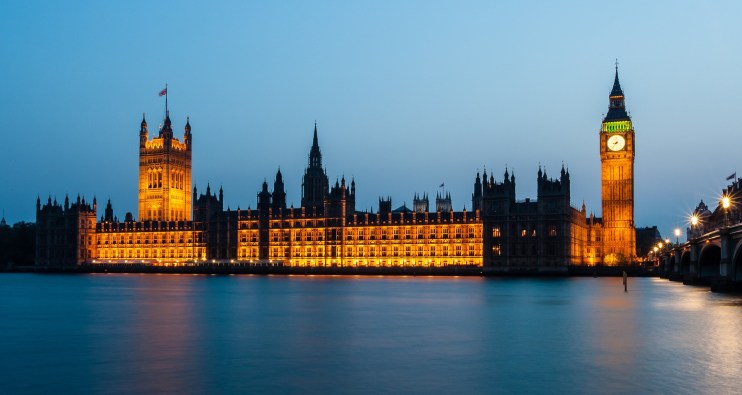Shell under pressure as politicians urge firms to follow BP’s lead and ditch Kremlin-backed assets

Conservative MP and BEIS committee member Alexander Stafford has urged British companies to follow BP’s lead and sever ties with Kremlin-backed organisations, following Russia’s invasion of Ukraine.
He told City A.M.: “It is reassuring news that BP has moved to divest from Russian state-controlled energy company, Rosneft. I call on all British organisations with links to Russian state-owned companies to have a long, hard look at their holdings and to act accordingly, in light of Russia’s invasion of Ukraine. We must stand with the Ukrainian people at this time and we must vote with our feet – and importantly – with our investments.”
BP is not the only UK-based energy company with links to Russia.
Shell has a 27.5 per cent stake in Gazprom’s offshore gas project Sakhalin-2, which supplies about four per cent of the global market for liquefied natural gas (LNG) and is also a lender to Nord Stream.
Earlier this morning, Shadow Secretary Ed Miliband called on Shell to take note of BP’s decision and also divest from its Russian assets.
Miliband said: “Shell should now follow BP and divest its Russian holdings to isolate the Putin regime. These investments are crucial for Putin’s regime and these companies need to act.”
BP revealed that removing Rosneft from its overall figures could result in charges of up to $25bn – and its shares have dropped over six per cent on the FTSE 100 following yesterday’s announcement.
Nevertheless, the IEA’s energy analyst Andy Mayer echoed calls from both MPs, and argued that companies such as Shell will have to take the financial hit for exiting lucrative arrangements, because Kremlin-backed partnerships can no longer be relied on.
He said: “Regimes that treat trade and contracts as exploitable evidence of Western fragility, rather than a source of mutual advantage, cannot be trusted. However painful, these deals must be terminated until there is a Russian administration, once again, that wishes to partner for peace and prosperity, rather than engage in expansionary wars of aggression against their neighbours.”
Sam Ashworth-Hayes, director of studies at the Henry Jackson Society, was particularly critical of the role of energy companies in the current crisis.
He said: “Russian oil and gas is being bought with the blood of Ukrainian civilians. BP has taken the right step by stepping back from Rosneft at a potentially huge cost. Shell should follow suit by dropping its stake in Gazprom.”
Alongside BP, Equinor has also divested from its Russian assets today, intensifying pressure on remaining companies with Kremlin-backed stakes in energy projects.
Energy firms weigh up losses against reputational harm
Investment analysts expect energy companies will face continued pressure to pivot from Russian assets following the Kremlin’s decision to invade Ukraine, and a largely unified repsonse from the West characterised by heavy sanctions of key banks and financial institutions.
Laith Khalaf, senior investment analyst at AJ Bell, said: “The war in Ukraine will be prompting international blue chip companies to review their exposure, particularly in the oil and gas sector, following BP’s decision to exit its stake in Rosneft. In the UK, scrutiny naturally then falls on Shell, which holds stakes in some of Gazprom’s energy projects, and it wouldn’t be a surprise to see these being offloaded too.”
This viewpoint was shared by Craig Erlam, senior market analyst at OANDA, suggesting that companies will simply have to stomach the heavy costs to shift assets that cause serious harm to its reputation.
He said: “It is inevitable that pressure is going to grow on these energy companies, and that there will be more scrutiny on where they have vested interest. This is especially the case when assets are tied to the Kremlin and the Russian state. BP’s move is bold, but also highlights the pressure on these companies to act – even if it comes at an enormous financial cost.”
However, it is unclear how energy giants will exit their arrangements after Russia’s central bank has told brokers to temporarily not fulfil orders to sell securities by non-residents.
Buyers could also be hesitant to invest in Russian stakes that could be perceived as tainted as a consequence of the conflict.
Susannah Streeter, senior investment analyst at Hargreaves Lansdown explained: “The challenge is just how companies might find a buyer to exit their stakes. Sovereign wealth funds would ordinarily be part of the solution but already have exposure to Russian oil and other suitors will be highly tuned into the reputational risk despite the potential for bargains to be had.”
When approached for comment, a UK Government spokesperson said: “Whilst this is ultimately a commercial matter, we welcome the growing number of organisations and governments joining the whole international community in isolating Russia, both diplomatically and financially. Putin’s unprovoked invasion of Ukraine must be a wake-up call for British businesses with commercial interests in Russia.”